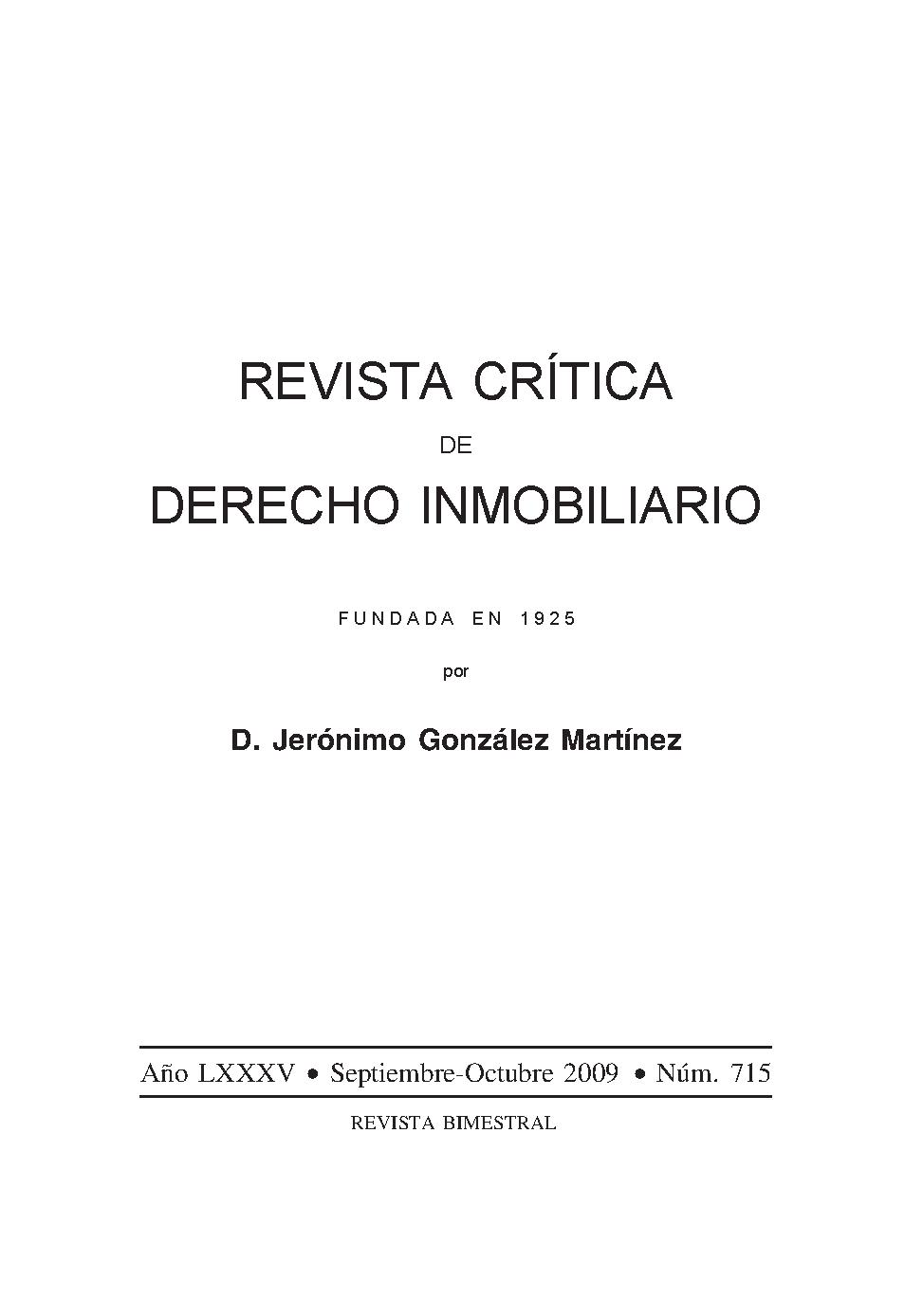LOS SUPUESTOS ESPECIALES DE TRAMITACIÓN Y ADJUDICACIÓN DE FINCAS EN LA REPARCELACIÓN Y LA PROBLEMÁTICA RELATIVA A LAS FINCAS Y APROVECHAMIENTOS DE ORIGEN.
Keywords:
PLOT REDIVISION, URBAN PLANNINGAbstract
There is a major stumbling block that relatively frequently hinders the practical implementation of development plans. That is when the plans call for the redivision of lots, and the lots to be redivided are in situations that are, in terms of registration, special, anomalous or even pathological. In practice this hampers the equal distribution of lots, and in such cases the rules of private law usually prove themselves unequal to the task of addressing such situations definitively as they arise, whether the situations are conflictive or not. Under these circumstances, the only solution is to turn to the competent judicial authorities (the civil jurisdiction), whose decision-making cadence often necessarily contrasts with the inveterate agility required by the pace of the development process. To offer solutions that would enable development work to go forward without prejudging the eventual definitive, judicially consolidated situation, Royal Decree 1093/ 1997 of 4 July (approving the rules supplementing the Regulation for the enforcement of the Mortgage Act on the entry in the Property Registry of acts of a development-related nature) establishes specific rules to meet each of a number of cases, to enable the physical consolidation of the resulting properties (and thus the culmination of the development process) notwithstanding the fact that the ultimate decision about the ownership of those properties may be pending a judicial declaration. This paper looks at the situations envisaged in the Royal Decree (and a few other situations that have an essential link to the problems of properties and original uses) and the foremost points of these problems.









